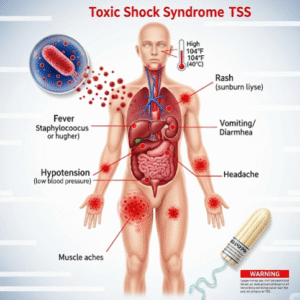Overview
Acute Coronary Syndrome (ACS) is an umbrella term describing any situation where the blood supplied to the heart muscle is suddenly blocked, causing a life-threatening emergency. It includes conditions like unstable angina, non-ST-segment elevation myocardial infarction (NSTEMI), and ST-segment elevation myocardial infarction (STEMI). Prompt diagnosis and treatment are critical to restore blood flow, minimize heart damage, and reduce the risk of complications or death.
What is Acute Coronary Syndrome?
Acute Coronary Syndrome refers to a group of clinical conditions resulting from sudden, reduced blood flow to the heart. This typically occurs when a plaque in the coronary arteries ruptures, leading to the formation of a blood clot that partially or completely blocks blood flow. The severity and duration of the blockage determine whether the person experiences unstable angina or a heart attack (myocardial infarction).
ACS is a medical emergency and requires immediate attention to prevent permanent heart damage or cardiac arrest.
Symptoms
Symptoms of ACS can vary in intensity and presentation but often include:
- Chest pain or discomfort, usually described as pressure, tightness, or fullness
- Pain radiating to the shoulders, arms (especially left), jaw, neck, or back
- Shortness of breath
- Nausea or vomiting
- Sweating (diaphoresis)
- Dizziness or lightheadedness
- Palpitations or irregular heartbeat
- Fatigue, especially in women or elderly patients
Note: Some individuals, particularly diabetics, may have “silent” symptoms or atypical presentations.
Causes
The most common cause of ACS is atherosclerosis, where plaques composed of fat, cholesterol, and other substances build up in the coronary arteries. A plaque rupture can lead to:
- Thrombus (clot) formation that blocks the artery
- Reduced oxygen supply to the heart muscle
- Myocardial cell death (in the case of infarction)
Other less common causes include:
- Coronary artery spasm
- Embolism
- Drug use (e.g., cocaine)
- Severe anemia or hypoxia
Risk Factors
Several factors can increase the likelihood of developing ACS:
- Smoking
- High blood pressure (hypertension)
- High cholesterol
- Diabetes or insulin resistance
- Obesity
- Sedentary lifestyle
- Unhealthy diet
- Family history of heart disease
- Advanced age
- Stress or poor mental health
Complications
Without timely treatment, ACS can lead to serious and potentially fatal complications:
- Heart failure
- Arrhythmias (irregular heartbeat)
- Cardiac arrest
- Stroke
- Cardiogenic shock
- Pericarditis
- Permanent heart muscle damage
Long-term heart health is often compromised if the condition is not treated early.
Prevention
Preventing ACS primarily involves addressing modifiable risk factors and maintaining heart health:
- Quit smoking
- Manage blood pressure and cholesterol levels
- Control diabetes effectively
- Exercise regularly (at least 150 minutes per week)
- Eat a heart-healthy diet (rich in fruits, vegetables, lean protein, whole grains)
- Maintain a healthy weight
- Limit alcohol intake
- Manage stress
- Take prescribed medications as directed (e.g., statins, beta-blockers)
Regular check-ups can detect early signs of heart disease before ACS occurs.
Treatment Options Korea
1. Emergency Medical Management
- Immediate hospitalization in cardiac emergency units
- Oxygen, aspirin, nitroglycerin, and morphine (as needed)
- ECG and cardiac enzymes (troponin) checked urgently
2. Antiplatelet and Anticoagulant Therapy
- Dual antiplatelet therapy (DAPT): aspirin + P2Y12 inhibitor (e.g., clopidogrel, ticagrelor)
- Anticoagulants: enoxaparin or heparin to prevent further clot formation
3. Reperfusion Therapy
- For ST-Elevation Myocardial Infarction (STEMI):
- Primary percutaneous coronary intervention (PCI) within 90 minutes
- Thrombolytic therapy (if PCI unavailable)
- For Non-STEMI or Unstable Angina:
- Early PCI based on risk assessment
- PCI widely available in major cardiac centers across Korea (e.g., Severance, Asan, Samsung)
4. Beta Blockers, ACE Inhibitors, and Statins
- Beta blockers: reduce heart workload and prevent arrhythmia
- ACE inhibitors/ARBs: for blood pressure and heart protection
- Statins: lower cholesterol and stabilize plaques
5. Cardiac Monitoring and Support
- ICU or CCU admission for continuous cardiac monitoring
- Treat complications like arrhythmia, heart failure, or shock
6. Cardiac Rehabilitation and Lifestyle Management
- Supervised rehab programs in Korean hospitals
- Smoking cessation, diet changes, exercise, and stress control
- Regular follow-up for medication adherence and risk factor control













